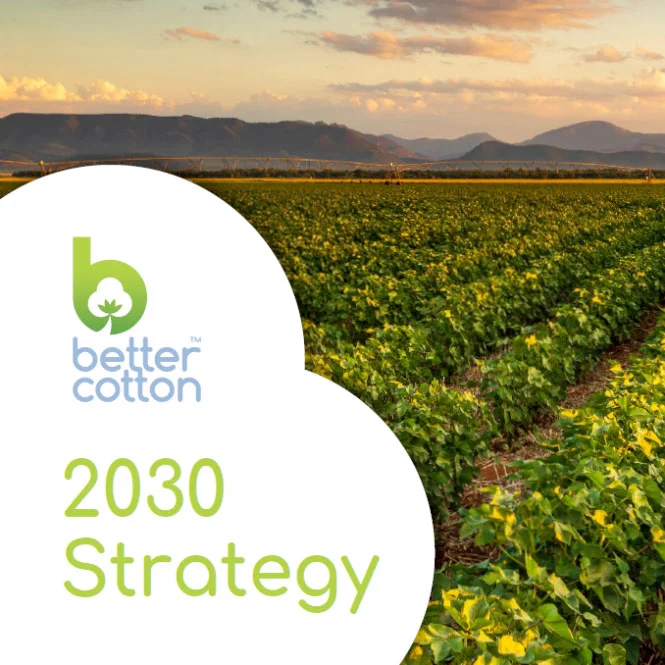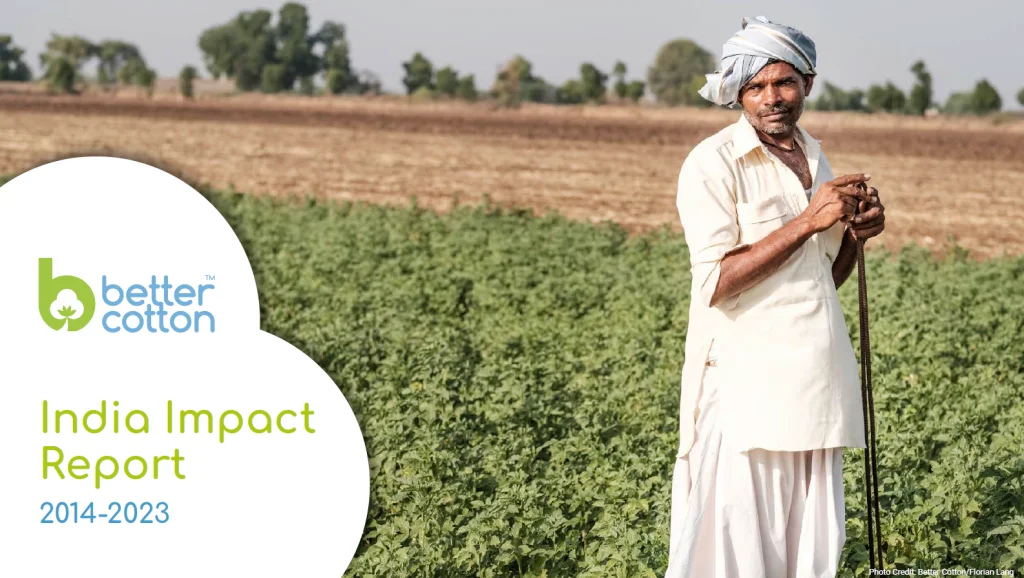- Who we are
- What we do
In just over 10 years we have become the world’s largest cotton sustainability programme. Our mission: to help cotton communities survive and thrive, while protecting and restoring the environment.
- Where we grow
Better Cotton is grown in 22 countries around the world and accounts for 22% of global cotton production. In the 2022-23 cotton season, 2.13 million licensed Better Cotton Farmers grew 5.47 million tonnes of Better Cotton.
- Our impact
- Membership
Today Better Cotton has more than 2,700 members, reflecting the breadth and diversity of the industry. Members of a global community that understands the mutual benefits of sustainable cotton farming. The moment you join, you become part of this too.
- Associate Membership
- Civil Society Membership
- Producer Organisation Membership
- Retailer and Brand Membership
- Supplier and Manufacturer Membership
- Find Members
- Member Monitoring
- Better Cotton Platform
- myBetterCotton
- Resources – Better Cotton Conference 2022
- Complaints
- Whistleblowing
- Safeguarding
- Get Involved in the Better Cotton Programme
- Thank you for contacting us
- Better Cotton’s Data Privacy Policy
- Log in
- Members’ Area
- Request for Proposals
- Better Cotton Cookie Policy
- Web Reference
- Measuring Cotton Consumption
- How to Implement the Chain of Custody Standard
- Resources – Better Cotton Conference 2023
- Certification Bodies Old
- Latest
- Sourcing
- Latest
The founding premise of Better Cotton is that a healthy sustainable future for cotton and the people that farm it is in the interests of everyone connected with it.
Let us help you find what you’re looking for
Results for {phrase} ({results_count} of {results_count_total})Displaying {results_count} results of {results_count_total}
Gap Inc. is a BCI Retailer and Brand Member. We caught up with Bonnie Abrams, Senior Director of Global Brand Management, to find out more about the organisation’s aims, commitments to Better Cotton, and how they communicate their work to the rest of the world.
Can you tell us why Gap decided to become a member of BCI and what your public target for sourcing more sustainable cotton is?
BCI was an important initiative for Gap to become involved with. Gap as an organisation has looked at sustainability and how to create garments in a thoughtful way since day one, not because of public demand or marketing purposes, but because it was the right thing for our company to do and it mattered to the founders. As Gap has become a much larger brand, our scale and scope has also increased, and we need to make sure we are being as sustainable as possible. That could be from how much water we use to produce our denim to how we source our cotton. Becoming a member of BCI was a natural step for us. We realised that the amount of cotton we use is significant, and any opportunity we have to become more sustainable has a significant impact. Our goal now is to source 100% of our cotton from more sustainable sources by 2021.
In 2017, Gap Inc. opened a pop-up store in New York with a focus on sustainability – can you tell us more about the initiative and the response it received?
Internally, Gap as a brand has been talking about how we can be more sustainable and thoughtful for 50 years, and we’ve had great opportunities to make major strides in the past few years. We realised that we have been talking about sustainability internally, but we haven’t really shared this with our consumers. Our pop-up store came in the year when we announced our goals with BCI and to source 100% of our cotton as more sustainable by 2021. We wanted to start sharing our work and educating our consumers. It’s something that is important for our consumers, and it’s something they care about. We did this with our pop-up store in New York City, which opened next to one of our flagship stores. The space was dedicated to our sustainability programmes including Better Cotton, the wash-well initiative, and at that time, we had a recycled denim collection. It was very successful. Consumers wanted to know more and learn more. They were also very surprised that Gap was doing this. It inspired us as a brand to go out in a bigger way with sustainable practices and goals. We started sharing this messaging in all stores. This has driven us to not only do this once – we are really looking to be consistent with this message to the consumer always. In fall 2018, you will see in our national campaigns that we address sustainability in a more overt way than we have ever done. We think it’s important that if you have goals, you should communicate them, go out to the public with them and be accountable for reaching them.
Do you have plans for further sustainability-focused communications in the future?
2018 marks the first year in which we are going to go out in a bigger way with our sustainability communications. We know these issues are important to our consumers, they want to know more, and they want to align with brands who share their personal values. As of 2018, you’ll see permanent sustainability messaging within Gap stores, highlighting our involvement with BCI, wash-well denim and recycling initiatives, and why these are important to us. We’ll be communicating online too, sharing information via social media and our national advertising campaigns, so that consumers can learn more about our programmes.
Listen to the full interview in the accompanying podcast, originally shared in the BCI 2017 Annual Report.


